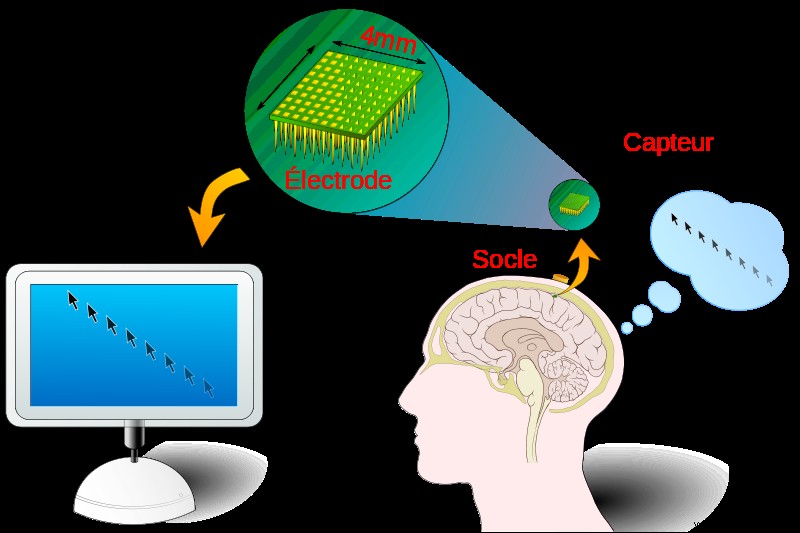If artificial intelligence often arouses concern among the general public, brain-machine interfaces (or BCIs) are not left out. In particular, some scientists think that this kind of technology could create a dangerous dependency on the human brain. However, some companies could exploit it in the context of neural marketing.
Brain-machine interfaces are direct link systems between a brain and a computer. They allow an individual to perform tasks without the action of peripheral nerves and muscles. However, if the concept dates back to the early 1970s, the first research on humans appeared in the 1990s. Today, several companies are working on ICM , such as Facebook with its R&D firm Building 8 or Neuralink, founded by SpaceX CEO Elon Musk.
A few years ago, Neuralink said it wanted to first find a medical use at ICMs. for example, it would be a question of restoring sight to blind people and hearing to deaf people. However, Facebook and other giants like Microsoft would like to model human thoughts as part of a association with a virtual reality system.
However, as shown by the publication of an article on APL Bioengineering, a support of the American Institute of Physics (AIP) on July 20, 2021, bioengineers from Imperial College London (UK) are concerned about this technology. These authors have indeed evoked a rather dark scenario for the future.

British bio-engineers believe ICMs will allow companies to exploit people's thoughts for money. In this sense, the authors evoked the notion of "neural marketing" . In addition, certain uses would be particularly dangerous. “If a chip assigns you a new identity, addiction to brain technologies could rival that of opioids” , can we read in the document. This addiction should not be taken lightly. Researchers cite cases of patients whose trials came to a rather surprising end . Several volunteers refused to have their ICM devices removed as they were part of themselves.
Researchers mentioned the concept of "proprioception" (kinesthesia), a deep sensitivity that is often referred to as the "sixth sense". It is simply the conscious or unconscious perception of the position of the different parts of the body. In the absence of this property, the human brain is unable to recognize the influence of an external device on himself. Autonomy could then be compromised. More specifically, the ICM would be able to change people's character traits, and thus undermine their personal identity.
The authors nevertheless concede that BMIs have positive aspects, especially in terms of health. people with severe disabilities will be able to control prostheses, move a wheelchair forward, use a computer and why not use home automation to manage the devices in their home. In companies, ICMs could make it possible to detect employee fatigue to prevent accidents at work. It could also help monitor potentially overworked students.